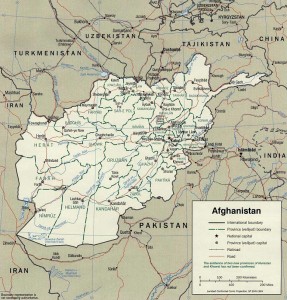Podcast: Play in new window | Download
Post Occupation Afghanistan 2021
Afghanistan had a progressive modernizing government in the 1970s. It was headed by the Afghan Communist Party which was semi-independent of the Soviet Union. Women had the right to go to school. They did not wear burkas. They wore blue uniforms. Women had the right to a job. The infrastructure in Afghanistan was being built up with a lot of money from the Soviet Union.
But the Afghan people fell victim to the Cold War against Communism. The United States armed the Islamic fundamentalist Mujadaheen, in what became a full-scale civil war. They got help from the reactionary Pakistanis. The Afghan government invited the Soviet Union into Afghanistan. The Soviet Union got tied down in the battle and eventually withdrew. It so exhausted the Soviet Union economically and politically that by 1991, the Soviet government collapsed. President Jimmy Carter’s Secretary of State Zbignew Brzezinski, bragged about this as a great success for US policy.
The Taliban won the civil war, including with a promise to end the shelling of Kabul, and came to power in Afghanistan. Osama bin Laden located himself and his Al-Qaeda followers in that country. When the Twin Towers and the Pentagon were struck by Al-Qaeda on 9/11, and so many people in the US were paralyzed with grief and fear, the only response offered to the American people was revenge. This paved the way for the US invasion of Afghanistan, which soon won overwhelming popular support.
The US government was not really interested in bringing democracy to or preserving women’s rights in Afghanistan. The United States allied with the warlords of the Northern Alliance, showering them with money. Afghanistan became a tremendous supplier of heroin to the world market. Thousands of US soldiers died, tens of thousands were wounded, trillions of dollars were spent. The war was unwinnable. First Donald Trump announced he would withdraw US forces, then Joe Biden took US troops out of that country. What does the future hold for Afghanistan?
Guest – Phyllis Bennis is a fellow of the Institute for Policy Studies, where she is she is the director of the New Internationalism Project and works on anti-war, US foreign policy and Palestinian rights issues. She has worked as an informal adviser to several key UN officials on Palestinian issues. Her books including Calling the Shots: How Washington Dominates Today’s UN, and Understanding the Palestinian-Israeli Conflict.
————–


